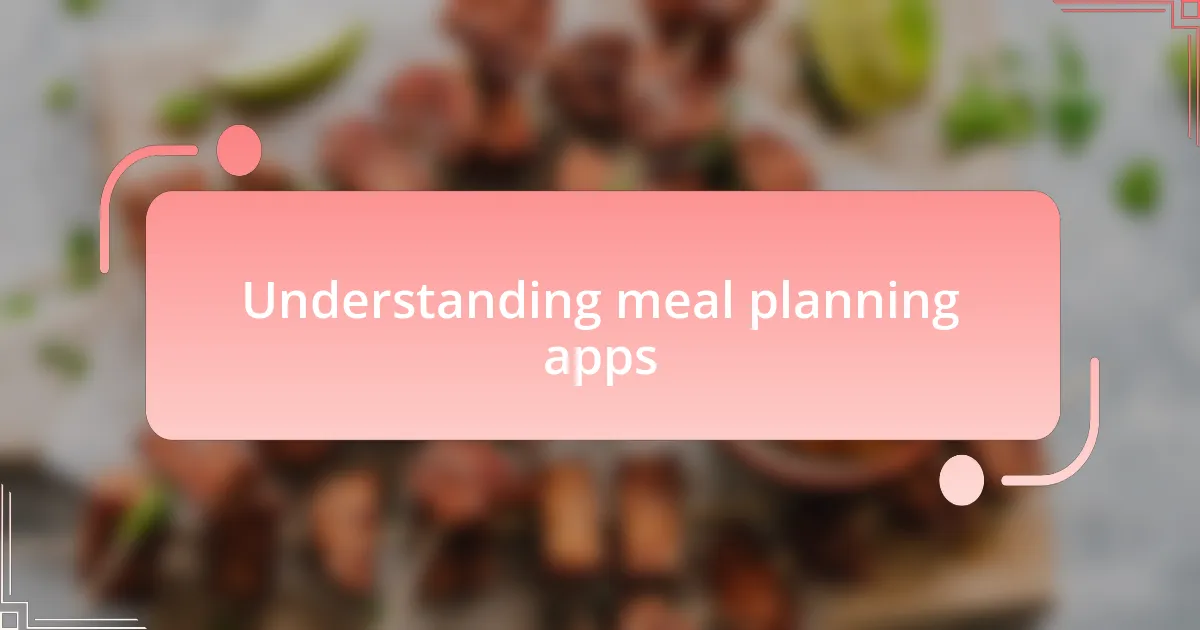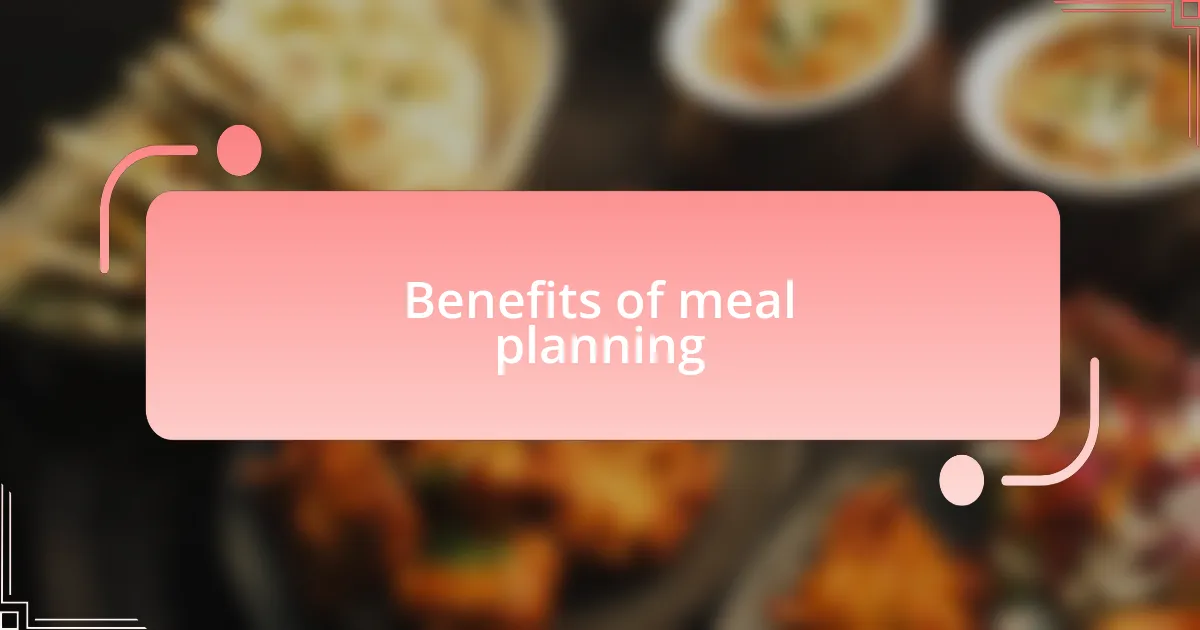Key takeaways:
- Meal planning apps help users select recipes based on dietary needs and create organized shopping lists, saving time and reducing impulse buys.
- Incorporating nutritional tracking in meal planning transforms users’ perspectives on food choices, aligning them with health aspirations.
- Meal planning creates structure, reduces food waste, and encourages healthier eating habits by keeping individuals accountable.
- Being intentional with grocery purchases leads to savings and promotes a more sustainable lifestyle.

Understanding meal planning apps
Meal planning apps are game-changers for anyone looking to streamline their cooking and grocery shopping. I remember the first time I used one; it was like having a personal chef at my fingertips! It’s fascinating how these apps can help users select recipes based on dietary needs, preferences, and even seasonal ingredients.
One of the standout features of many meal planning apps is the ability to create a shopping list directly from your meal selections. Have you ever wandered the grocery store, unsure of what to buy? I know I have, and it’s frustrating. With an app, you can keep your list organized and tailored, which not only saves time but also reduces impulse buys that can derail healthy eating goals.
Additionally, many apps incorporate nutritional tracking, allowing you to make informed choices about what you’re consuming. When I discovered this aspect, it transformed how I viewed my meals. It’s empowering to align my food choices with my health aspirations, making meal planning not just a chore, but a proactive step toward a healthier lifestyle.

Benefits of meal planning
Meal planning offers numerous benefits that can greatly improve your overall eating experience. It’s not just about deciding what to eat; it’s about creating a sense of structure in your busy life. I still recall those weeks when I felt lost trying to figure out dinner every night. With a meal plan, I discovered not only what I would cook but also how much time and energy I could reclaim for other activities.
One significant advantage of meal planning is reducing food waste. I used to find myself tossing expired ingredients or leftover takeout more often than I liked. Once I started planning my meals, I noticed a remarkable decrease in waste. Being more intentional with my grocery purchases means I use everything I buy, leading to not only savings but also a more sustainable lifestyle.
Another compelling aspect of meal planning is its potential to keep you accountable. When I mapped out my meals, I noticed I made healthier choices, consciously steering away from those late-night snack temptations. Isn’t it amazing how a simple plan can reshape your habits? By having a clear vision of what I would eat, I felt empowered to stick to my nutrition goals. Meal planning isn’t just a technique; it’s a transformative practice for a healthier relationship with food.